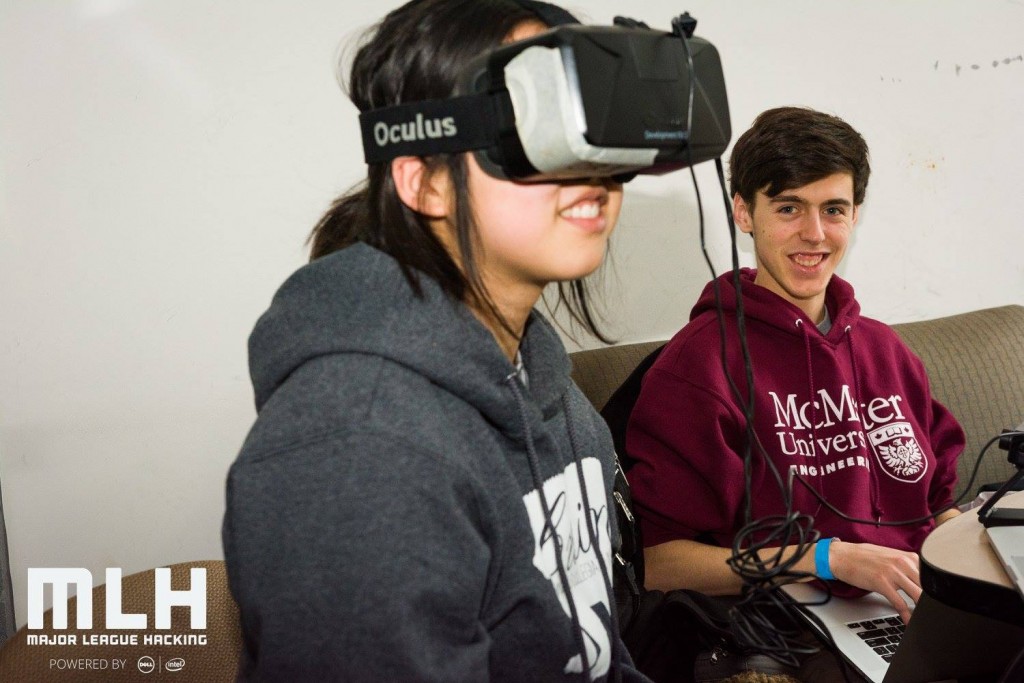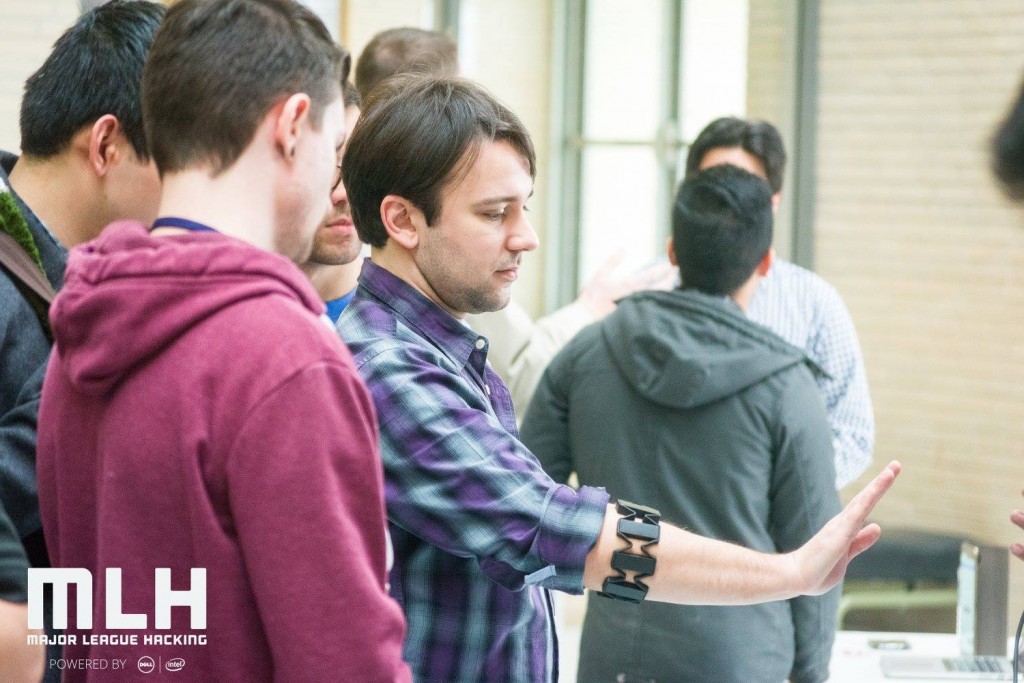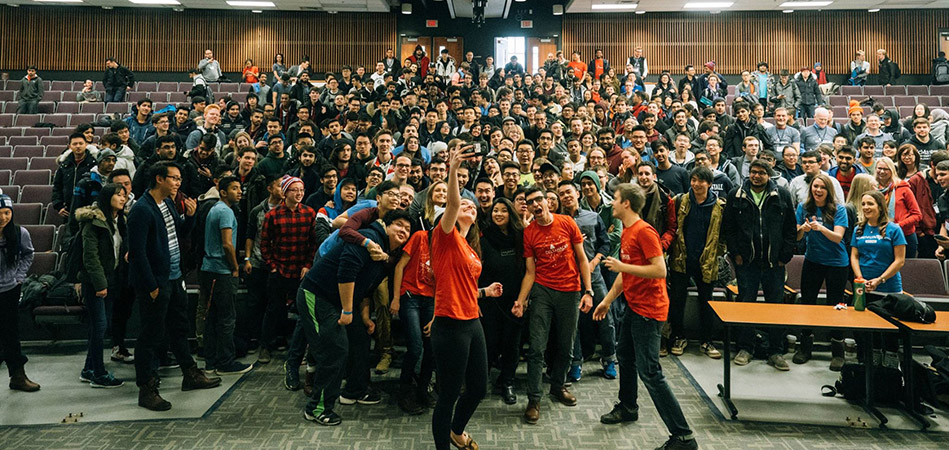Interview about DeltaHacks IV with Natalie Chin
Check out the interview below with Natalie Chin of the DeltaHacks (@deltahacks) hackathon team on what’s in store for this year’s hackathon and opportunities to get involved as judges/mentors! DeltaHacks IV will take place on January 27th – 28th on McMaster University campus.
 Can you tell our readers about the history of DeltaHacks?
Can you tell our readers about the history of DeltaHacks?
DeltaHacks was founded back in 2014 due to lack of hackathons in the area focusing on social change and social impact. It was a common instance, that projects were started during hackathons, and not continued and sustained afterwards. As a result, students from the McMaster Community banded together and created their own hackathon for change. DeltaHacks stands out from other hackathons by inviting industry professionals who know their field, to pitch ideas to our attendees. This allows our attendees to get a real world view of what’s missing in the field, and see what they can do to help.
What kinds of exciting creations have come out of past DeltaHacks events?
Generally, we’ve seen a really wide variation of hacks at DeltaHacks. We have a lot of social change and social impact projects. We’ve also had a variety of hardware and software projects at our event.
Last year, there was a really cool hardware hack called Lifeline that tracked tilts and changes in the head direction while driving, to prevent drowsy driving and prevent it. If the driver was getting continuously more and more drowsy as time went on, it would send audio feedback to try to keep the driver alert. Throughout the process, if the driver is still drowsy, the response would continue to escalate through texting and/or calling emergency contacts. The hack ended up winning the “Best Hardware Hack” and “Second Prize” Category. Seeing the implementation fully functional was really cool. It had an effect on the real world.
At a past DeltaHacks event, we saw Project Julius, which was created to prevent photosensitive epileptic seizures due to quick flashes in video content. The hack would essentially analyze the screen with historical analyses, looking for pixels which have changed very quickly to prevent seizures. Once the pixels change dramatically, the hack shows a window overlay covering all other windows on the screen, and show the warning. A hack like this is pivotal to social change.

What’s your role with the hackathon?
I am the Director of Supportive Relations. I always try to think of a descriptive name for my team – I’m not sure Supportive Relations does it justice. But ultimately, we handle the UX of the event, which consists of contacting mentors, judges, challenger (idea-generation) mentors for our event, which adds to the attendee experience. We make sure that participants have enough mentors so they can get their questions answered timely. We also reach out to not-for-profits in the community, government organizations, startups, and and student chapters, inviting them to an idea generation session. We essentially give challengers 3-5 minutes to talk about their project, and provide time for participants to discuss with mentors afterwards.
What’s new and exciting for DeltaHacks IV?
In our past iterations of DeltaHacks have mainly focused on health-care related hacks, and the idea-generations typically came from doctors, physicians and pharmacists. We’ve expanded that this year, to include a variety of other fields, and reached out to not for profit organizations, student chapters at McMaster, and leveraging our professors and hacks that they may benefit from. Our list is currently located here: deltahacks.com/challenges, so our participants know what the challenges are before coming to the event. The list is going to be continuously updated until the event, as we finalize the mentors.
Another exciting thing that we’ve got in store is a focus on blockchain development. It’s been a pretty hot topic recently, and has been brought up quite a number of times in the HamOnt Conference Series for Internet of Things. DeltaHacks is super happy to welcome a few local and international organizations that focus on crypto, namely STACK, Parity, and Oraclize. This is the first time that we’ve put aside funds for a specific cryptocurrency prize category, and is the first time that we’re inviting small and large companies for mentorship. I can’t wait to see the hacks that are created once the hackathon is done.
How many participants are you expecting? Where do the participants come from?
We’re expecting 400 attendees. Participants are coming from all over Ontario. Most of our participants are coming from Waterloo or the Toronto Area.
What do you hope students get out of participating in DeltaHacks?
I don’t expect our participants to fly themselves in a spaceship to Mars (though that would be really cool) after DeltaHacks. All I want is for our participants to leave, feeling like they have learnt something. There’s nothing more rewarding than the feeling after you’ve created something that you never thought you’d finish, be it understanding classes, or full implementation of a feature.
This year, 52% of our attendees are beginner hackers – who have been to 0-1 hackathons in the past. As an application rate, this is nearly unheard of. I hope that the beginners feel welcomed at DeltaHacks, and feel comfortable to ask for help when they need it. I would encourage anyone to take advantage of this opportunity, to ask for help from mentors and help with implementing your ideas.
What’s your own personal favourite hackathon creation?
My personal favourite hackathon creation would probably be one created at ETHWaterloo, a hackathon based on Ethereum Development, called the Decentralized Autonomous Charity (or DAC for short). It was a transparent way for people to donate funds to charities, and see the flow of funds, to see how it was broken down, and what it was used for. This was my favourite hackathon project because it had such a large social impact and use-case. Blockchain in itself was a new concept, not to mention being able to apply it in the real world in such an important way.
Though it’s getting better, there’s always been a bit of a disconnect between Hamilton and McMaster (e.g. the “pop the bubble” initiative at McMaster a few years back). What do you think we can do to better bridge the gap, pop the bubble, etc, between the awesome students and innovations happening at McMaster and the civic renaissance happening in Hamilton?
Stepping in and out of the bubble with an interchange of ideas, is most useful. I think the HamOnt Conference Series does it well, in providing discounted student tickets to events, and of course, free food. I find that it gets quite a few Mohawk and Mac students out to the events in the Hamilton area. I think information flow in our bubble, and continuous propagation between the campus borders will continue to better bridge the gap.
I, myself, have pushed the Machine Learning HamOnt Conference to a course that I TA’d, and was met with great enthusiasm, as many of my students had wanted to learn about Machine Learning. Continuous flow of information in and out of the bubble, convinces students to leave campus and explore the community outside it; while events like DeltaHacks help pull the Hamilton Community into our bubble.
With these events – like the Hamilton Conference Series and DeltaHacks, students at McMaster get to network and talk to industry-leaders in the Hamilton Area. They get to find mentorship, advice, tips, guidance, and are introduced to a really unique atmosphere. With the Hamilton Conference Series, we have students leaving the “bubble,” to learn about Internet of Things, or Machine Learning; and we have industry-leaders in the Hamilton Area coming to mentor for DeltaHacks. Having events like these, make many people willing to “pop” and/or willing to leave the bubble.
How can the Hamilton technology community help and engage with DeltaHacks?
We have a lot of different roles available.
Hacking is 1pm on Saturday to 1pm Sunday, so if you are comfortable with showing and teaching technologies, mentoring would likely be a good fit for you. The role of a technical mentor is to help with development environments, helping debug code, and more generally, help with problems participants may have while implementing something. We don’t specify a time that you have to be available, nor do we have requirements on what you’re mentoring. A question that we get a lot from people who want to mentor, is what technology they should choose. My answer – whatever you’re comfortable with. There are no boundaries for what you can mentor in, and we have never said no to mentorship before. In the past, our mentorship was mainly based on web development, android development, and IOS development – but we’re more than happy to open up the doors to anything this year. If you are interested, you can sign up at deltahacks.com/mentor.
You can also help out by judging at our hackathon, from 1pm to 4:15 pm on Sunday. Essentially, at the end of the hackathon, we hold a science-fair style expo, to show off everyone’s projects that they made during the course of the hackathon. As a judge, you get to look at the creativity and innovation of our students, and get to see their final projects. You can sign up at deltahacks.com/judge.

